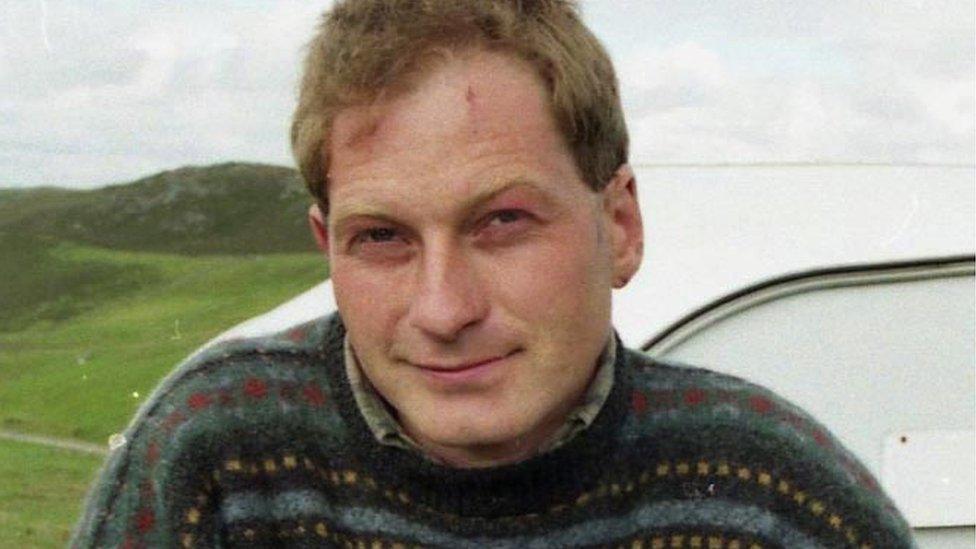Highland Council liable for railing in fatal crash
- Published

David Bowes' truck came off the causeway at Kyle of Tongue
A family has won a court action against a local authority after a man plunged to his death from a bridge with a defective parapet.
Plumber David Bowes, 46, drowned after his pick-up truck collided with the parapet on the Kyle of Tongue Bridge in Sutherland and went into the sea.
The local authority involved, Highland Council, disputed liability.
But a judge at the Court of Session in Edinburgh has ruled it breached its duty to deal with the railing.
The decision clears the way for Mr Bowes' family to claim an undisclosed sum in damages agreed with the council.
The court heard that Mr Bowes, from Bettyhill, Sutherland, lost control of his vehicle. His truck crossed the carriageway, mounted a pavement and collided with the parapet before going into the water.
Judge Lord Mulholland said Mr Bowes would have suffered minor injuries, or even escaped unharmed, if the railing had been "operating as designed".
He said Highland Council breached its duty to deal with the defective parapet by introducing temporary traffic measures until it was replaced.
The court heard that an engineer carried out an inspection of the bridge on the A838 road in 2005.
He recommended that major repairs to the structure be carried out without delay and that in the case of the parapet it should be carried out in the next financial year.
Defects were identified in welds between posts and bases along with cracked base castings.
'Surprising and alarming'
The engineer also recommended that interim measures be put in place pending the replacement of the parapet, with a reduction in the speed limit, traffic lights and a temporary barrier.
Monitoring of the structure was introduced but was ceased after January 2008.
Lord Mulholland said: "In my opinion, the decision to discontinue monitoring was wrong, did not make sense, was against previous advice and, in relation to a matter clearly related to safety, meant that the defender had no idea of the containment strength of the parapet, if any, whether it was continuing to deteriorate, to what extent and rate it was deteriorating, and what measures, if any, should be taken to deal with the problem."
He said it was "surprising and alarming that basic health and safety principles of risk assessment were not applied to the critical issue of the safety of the parapet".
The judge said if interim measures were introduced, they would have alerted road users to the risk of the hazard and would have resulted in them taking care by reducing speed and driving on a single carriageway with temporary lights.
Lord Mulholland said: "The temporary barriers together with other interim measures would have reduced speeds such that Mr Bowes would probably not have left the bridge to his death.
"I therefore find it proved that the defender breached its duty to deal with the hazard, namely the defective parapets, by implementing interim measures until the parapets were replaced."
- Published10 January 2012